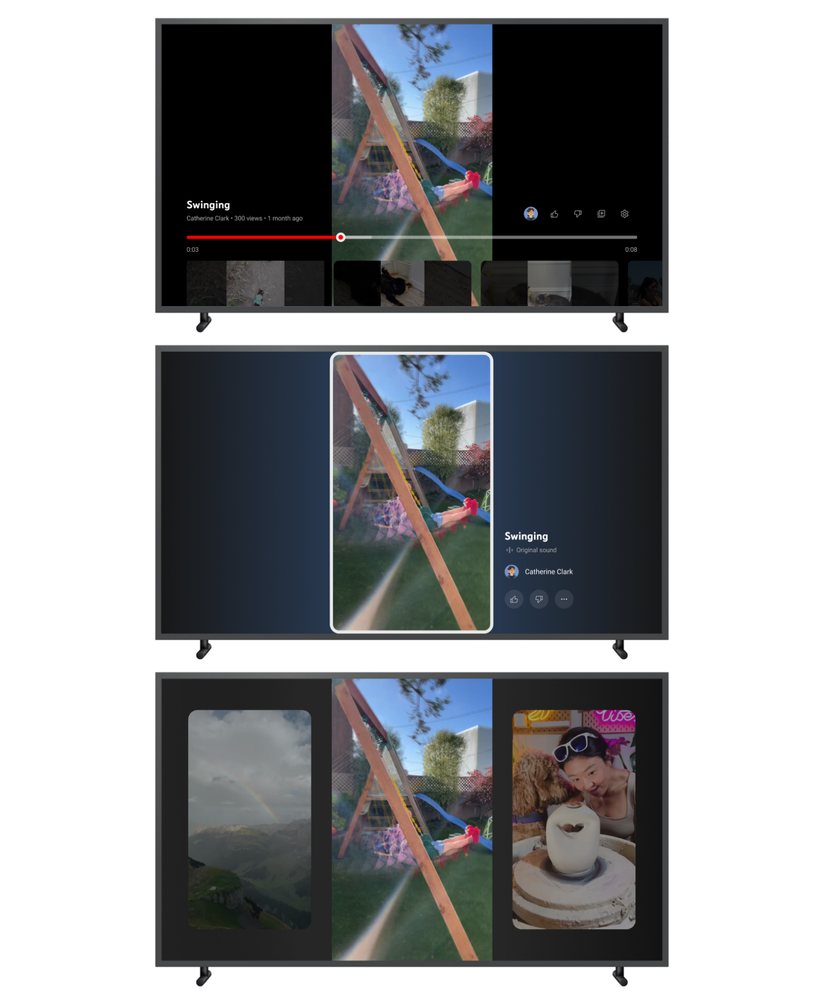YouTube Shorts came into existence after Instagram reels and made it big. So big that now the Shorts are ready to appear on bigger screens!
“Today YouTube Shorts launches on TV. We’ll take a look at the design process of expanding Shorts to this new surface, taking a deep dive on what it takes to bring mobile-first video formats to your TV screen.”, announced YouTube on 7th November on their blog.
“Though the idea of bringing short films to television may seem simple, getting here was not as easy as it may seem. Because of this, we’re opening the curtain to give you a peek at what it takes to introduce a vertical, mobile-first format to TV.” they added.
Also Read: Instagram is releasing its new in-app post-scheduling tools for business accounts!

Product managers, engineers, designers, and researchers from the Shorts and TV teams gathered to explore how to get this novel video format to the big screen in order to make this moment happen.
Bringing Shorts to our community has transformed the way people create and watch video on YouTube. When we introduced this new format, we optimized the experience for the mobile creator and viewer. Today, we’re expanding viewing access to Shorts to our fastest growing surface: the TV screen. While this may seem like a natural next step, an incredible amount of thought and care has gone into bringing this vertical, mobile-first experience to the big screen. In this next installment of our Innovation Series, you’ll hear from two of the user experience (UX) design leads who made this leap a reality.
Neal Mohan, Product Officer
Making the jump from mobile to TV
They used an innovative study method and invited participants to write “Love” or “Breakup” letters to describe their thoughts regarding short-form material on TV nowadays in order to better understand what viewers would prefer from a shorts experience on TV.
The “love letters” revealed that consumers like watching stuff they enjoy conveniently with friends and family. The “breakup letters” revealed that users thought the platform may be awkward, sluggish to load, or lacking in essential capabilities like sharing.

“Our research told us that there would be unique perks of watching Shorts on the big screen. They’re easier to watch with others, and the larger screen makes it a more comfortable viewing experience. But the design challenge remained: how could we preserve the essence of Shorts with vertical videos on wide-screen TVs?
We started by creating three very different design concepts:
We wanted to know if the unique feel of Shorts could be conveyed in our conventional video player (Option A) or if it should be customized to better fill the blank spaces on either side of the video (Option B). We also considered a divergent option — the “Jukebox” style (Option C)— where multiple Shorts would fill the screen at the same time, taking full advantage of the TV screen’s additional space.”
They concluded the customized Shorts experience delivers the best of both worlds: a clean design while making the most of the wide screen’s additional space. They also learned that viewers wanted to be in the driver’s seat of the viewing experience and were happy to use the remote to manually advance to the next Short rather than have the feed autoplay.
Bringing the learnings live
They also tried two different prototypes-
The “simple” prototype included the bare minimum: sidebars and basic functionality for engaging with Shorts. The “maximal” prototype gave a lot more visible functionality, from related tags to comments, and included a color-sampled blurred background.
After testing these two prototypes with the community, they learned that people preferred the “maximal” version. In the design rolling out, you’ll see a modified version of that “maximal” prototype; they simplified the design of the right side rail but will be looking to bring additional functionality in future releases. We believe that this experience balances the fun, and quirkiness of Shorts in a way that feels natural for TV.
“Over the coming weeks, this experience will be rolling out on TV models (2019 and later) and on newer game consoles.”


